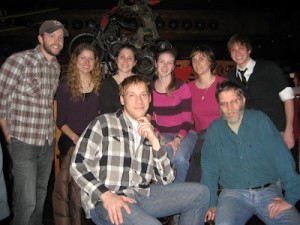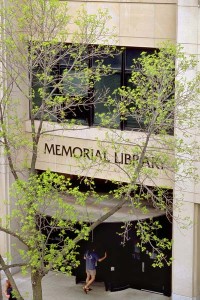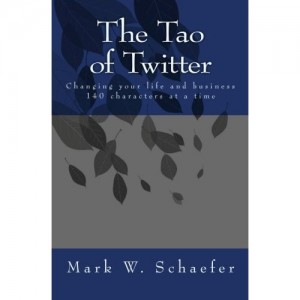In this third installment of my special segment where I look back on my time in grad school I want to talk about what I actually took away from my program. I’m in the University of Wisconsin Madison’s School of Journalism and Mass Communication Master’s Pro-Track program. I realize that is a mouthful, which is why I typically refer to it as just the Pro-Track.
The program has only three core courses: short form journalism, long form journalism, and digital storytelling. The rest of the credits (you need 30) come from electives, either in the J-School or in any of the other departments on campus. I’ve taken classes in Zoology, History of Science, Life Science Communication and of course the J-School. Everyone has to have a specialty but you can choose to specialize in whatever field interests you most, I obviously chose science. I tried to choose electives that would be useful for science communication, not just journalism in general.
One of the best and worst things about the program is the flexibility it affords you to do whatever you want. I liked not having to fit into a pre-fab mold for what a Master’s student should look like. However, there were a lot of instances where I felt like I was completely on my own. Sure, I can always go ask for help, and when I’ve needed guidance I’ve sought it out. I just feel like in general, the Master’s Pro-Track students are an island unto themselves within the overall J-School. I literally had a PhD say to me once, “I don’t really consider you part of the department.” Yeah. Well, learning to be a practicing journalist is very different from doing academic research in communication, it just is.
Still, while we might be our own island, it wasn’t exactly a lonely island. The best thing about the way the MA Pro-Track program is structured is that you go through it with a cohort. The group of people I went through this grad school experience with were a supportive, and in my humble opinion, critical part of the program. More often than not, they were my sounding board for ideas, they answered my questions, they helped me talk through issues or problems, and they offered advice. On days when I wanted to tell journalism to go screw itself, they pulled me back. In several instances they became real friends, and an important part of my Madison life. I am very grateful to them, for helping me make the most out of this experience. (You can get the links to all of their blogs/websites here and I do sincerely encourage you to check them out).
There is a lot more I could expound on about my experience, good and bad. If you are interested in the Pro-Track, or are a prospective student feel free to send me an email and I’d be happy to discuss the program in more specific terms.


